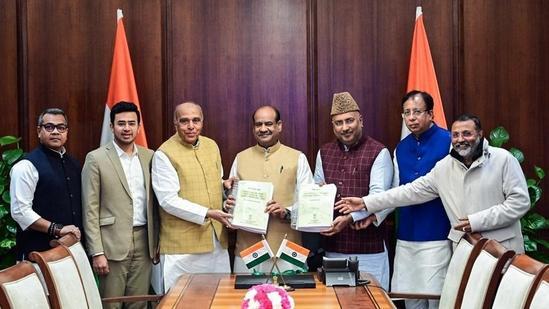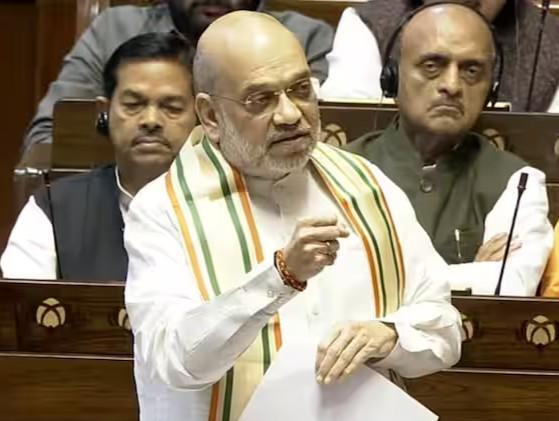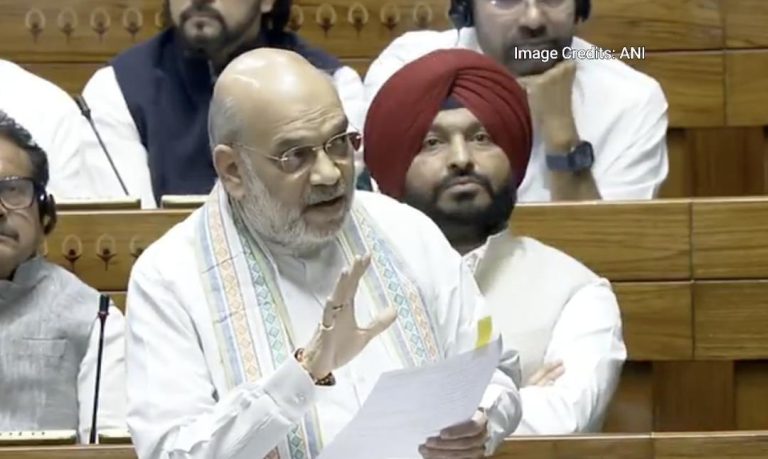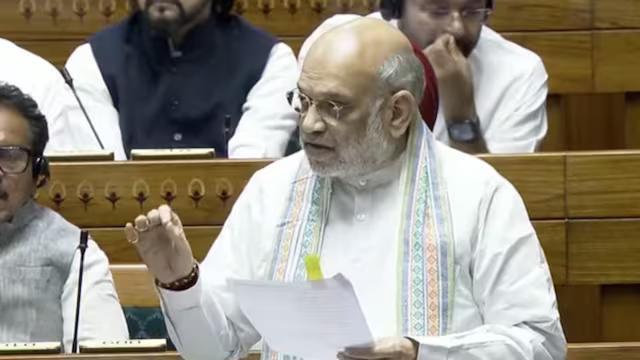
Which Parties are Supporting & Which are Opposing the Waqf Amendment Bill?
The BJP-led Centre is all set to table the Waqf (Amendment) Bill, 2025 in the Lok Sabha for discussion and passage on Wednesday. The bill aims to reform the Waqf Act, 1995, which provides for the management and administration of religious properties belonging to Muslims. The Bill has sparked a heated debate, with the BJP claiming it is aimed at ensuring transparency and accountability in the management of Waqf properties, while opposition parties have raised concerns about the proposed changes.
The BJP is confident of securing support from key allies, including Nitish Kumar’s Janata Dal (United), Chirag Paswan’s Lok Janshakti Party (Ram Vilas), and N Chandrababu Naidu’s TDP. These parties have been vocal about the need for reforms in the Waqf administration, citing instances of corruption and mismanagement.
On the other hand, several opposition parties have announced their intention to oppose the Bill. These include the Congress, Samajwadi Party, NCP-SP, TMC, AAP, DMK, and RJD. The opposition parties have raised concerns about the Bill’s potential to undermine the autonomy of Waqf boards and the rights of Muslim communities.
The Congress has accused the BJP of trying to “Islamise” the Waqf boards and claimed that the Bill is an attempt to bring the Waqf boards under the “control of the RSS”. The Samajwadi Party has also criticized the Bill, saying it is an “attack on the dignity of Muslims”.
The NCP-SP has expressed concerns about the Bill’s potential to create confusion and ambiguity in the management of Waqf properties. The TMC has accused the BJP of trying to “divide the country” by introducing the Bill.
The AAP has also opposed the Bill, saying it is an “attempt to communalize” the Waqf boards. The DMK has claimed that the Bill is an “attack on the secular fabric of the country”, while the RJD has accused the BJP of trying to “destroy” the Waqf boards.
The Waqf (Amendment) Bill, 2025 seeks to replace the existing Waqf Act, 1995. The new Bill proposes to empower the Centre to appoint chairpersons of Waqf boards, which are currently managed by state governments. The Bill also seeks to increase the representation of non-Muslims on Waqf boards, which has sparked concerns among Muslim communities.
The BJP has countered the opposition’s criticism, saying that the Bill is aimed at ensuring transparency and accountability in the management of Waqf properties. The party has claimed that the existing Waqf Act is outdated and has been misused by state governments to favor certain individuals and groups.
The BJP has also accused the opposition parties of being “communal” and trying to “divide the country” by opposing the Bill. The party has claimed that the Bill is an attempt to “empower” Muslim communities and ensure that they have a greater say in the management of Waqf properties.
The passage of the Waqf (Amendment) Bill, 2025 is seen as a test of the BJP’s strength in Parliament. The party has a majority in the Lok Sabha, but the opposition parties have been vocal about their intention to oppose the Bill.
The outcome of the Bill’s passage will depend on the BJP’s ability to secure support from its allies and the opposition parties’ ability to rally their members to vote against the Bill. The Bill’s passage will also depend on the government’s ability to address the concerns of the opposition parties and make necessary changes to the Bill.
As the debate on the Waqf (Amendment) Bill, 2025 heats up, it remains to be seen whether the BJP will be able to secure the necessary support to pass the Bill. One thing is certain, however – the Bill has sparked a heated debate and will have significant implications for the management of Waqf properties and the rights of Muslim communities in India.
Source:






